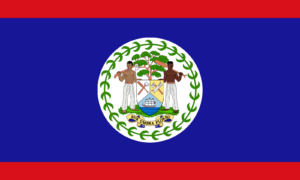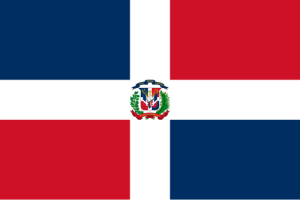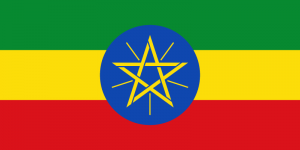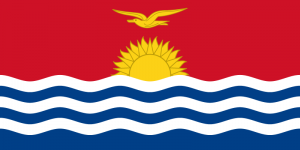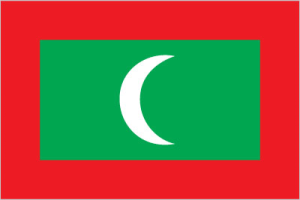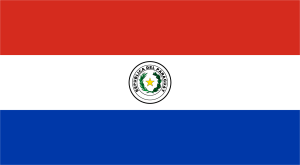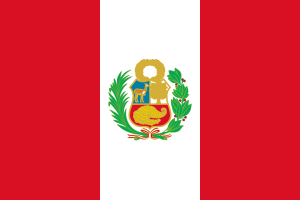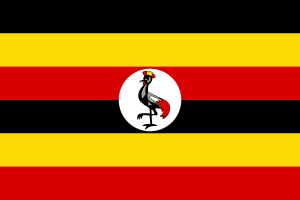OUR PROGRAM
The NAP Global Network worked closely with the Department of Sustainable Development in the Ministry of Education, Innovation, Gender & Sustainable Development in Saint Lucia from 2017 to 2020 to ensure priority sectors are able to build their resilience to the impacts of climate change and that the NAP process is effectively communicated to donors, the private sector and general public. This work was undertaken in close collaboration with the Japan-Caribbean Climate Change Partnership, administered by UNDP.
Our program supported the development of sectoral adaptation strategies and action plans (SASAPs), and associated and investment strategies, for sectors that are particularly vulnerable to climate change, including agriculture, fisheries and natural resources. We helped build a bankable pipeline of adaptation projects for these sectors, and complemented this with both a NAP financing strategy and private sector engagement strategy.
We also helped Saint Lucia’s government develop strategic communications to further engage stakeholders in adaptation actions, including through events, trainings, artwork and public service videos. We supported development of a national climate change research policy and strategy. And finally, we helped increase coordination among donors active in the region through a donor symposium.
2022
- Saint Lucia’s First Adaptation Communication to the UNFCCC: Set out in detail Saint Lucia’s progress and continuing needs in climate adaptation.
- Saint Lucia’s First National Adaptation Plan Progress Report: Presented the progress that Saint Lucia has made on adaptation action since the launch of the country’s NAP (2018–2028).
2021
- Saint Lucia’s Climate Policy Environment: Towards Concrete Action. Discussion paper by Dawn Pierre-Nathoniel, Department of Sustainable Development
2020
- Resilient Ecosystems Adaptation Strategy and Action Plan (REASAP) 2020–2028: Identified 58 adaptation measures deemed critical for strengthening the resilience of natural systems and building climate resilience across Saint Lucia’s society.
- sNAPshot | Saint Lucia’s REASAP 2020–2028: Provided an overview of Saint Lucia’s Resilient Ecosystems Adaptation Strategy and Action Plan 2020–2028 (REASAP).
- Portfolio of Project Concept Notes for Resilient Ecosystems 2020–2028: Outlined the prioritized measures contained in Saint Lucia’s NAP and REASAP.
- Climate Change Research Policy: Used to ensure the best available science and evidence support the decisions that Saint Lucia’s institutions and people make to build resilience to climate change.
- Climate Change Research Strategy: Created to enhance the availability and use of climate change-relevant information in national decision making.
- sNAPshot | Saint Lucia’s Climate Change Research Policy and Strategy: Showcased key messages from two resource documents that will be used to maximize the potential for research collaborations in Saint Lucia to inform national climate risk reduction decisions.
- NAP Financing Strategy: Outlined key sources of financing to move from NAP planning to implementation.
- Private Sector Engagement Strategy: Developed a strategy to engage the country's private sector in the NAP process, particular focus on agriculture, financial services, construction, and tourism.
2019
- Video | Saint Lucia's Journey to Reduce Single Use Plastics: Produced as part of communications support for Saint Lucia's NAP.
2018
- NAP Donor Symposium: Presented NAP priorities to key donors operating across the Caribbean.
- NAP Assembly: Launched the country's NAP and SASAPs in water, agriculture & fisheries sectors.
- Saint Lucia’s NAP Roadmap and Capacity Development Plan 2018-2028: Developed guiding factors to prepare, implement and monitor Saint Lucia's NAP.
- Saint Lucia’s NAP Stocktaking, Climate Risk and Vulnerability Assessment Report: Analyzed stocktaking data on the climate risks and vulnerabilities in various sectors.
- Saint Lucia’s NAP 2018–2028: Defined Saint Lucia's NAP as a ten-year process, consisting of priority adaptation measures in eight key sectors/areas.
- Guidelines for the Development of Sectoral Adaptation Strategies and Action Plans (SASAPs): Outlined Saint Lucia's SASAP experience under the NAP process.
- Monitoring and Evaluation Plan of Saint Lucia’s NAP Process: Defined Saint Lucia's M&E objectives and a plan for its implementation.
- NAP Communications Strategy: Outlined how the Department of Sustainable Development can strategically engage with key audiences in supporting and participating in the NAP process.
- NAP Video in English and Creole: Raised awareness of climate change in Saint Lucia and the NAP process.
2018 - Sectoral Adaptation Strategies and Action Plans (SASAPs)
- SASAP for the Agriculture Sector 2018-2028: Finalized adaptation strategies and action plans for the agriculture sector.
- Portfolio of Project Concept Notes for the Agriculture Sector 2018-2028: Concept notes for eleven adaptation projects in Saint Lucia's agriculture sector.
- SASAP for the Fisheries Sector 2018-2028: Finalized adaptation strategies and action plans for the fisheries sector.
- Portfolio of Project Concept Notes for the Fisheries Sector 2018-2028: Concept notes for ten adaptation projects in Saint Lucia's fisheries sector.
- SASAP for the Water Sector 2018-2028: With support from the United Nations Development Programme’s Japan-Caribbean Climate Change Partnership, a guidance document was prepared to address the adaptation options for Saint Lucia’s water sector.
- Portfolio of Project Concept Notes for the Water Sector 2018-2028: Concept notes for nineteen adaptation projects in Saint Lucia's water sector.
2015-2017
- NAP Communications training sessions: Government officers and journalists trained to effectively communicate about NAP and climate change.
- Sector consultations: Worked with key stakeholders from the agriculture, water and fisheries sectors on their adaptation priorities.
- Caribbean NAP Assembly: Caribbean countries shared plans to adapt to climate change.
- Saint Lucia Climate Change Baseline Assessment Report: With the support of different partners, the Government of Saint Lucia collected and analyzed socioeconomic and environmental baseline data.
- The Saint Lucia Climate Change Adaptation Policy: The Ministry of Sustainable Development, Energy, Science and Technology developed adaptation policies recognizing the roles of Government, the private sector and civil society.


